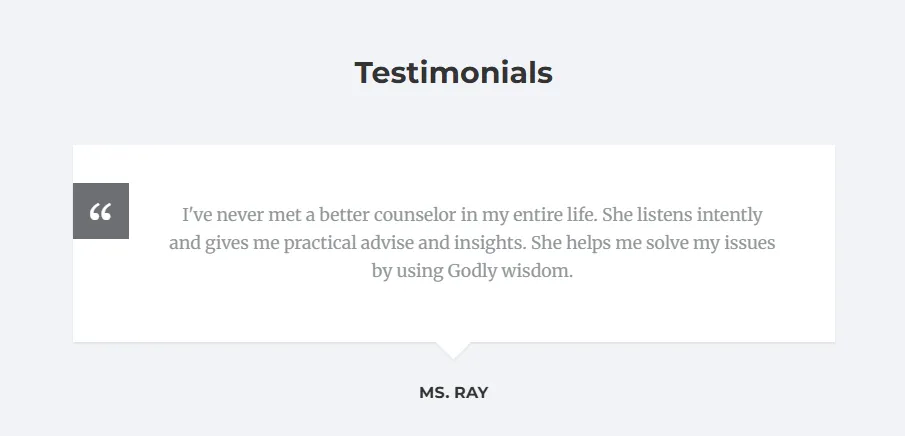
Welcome to Christian
Counseling of Arkansas
Christian Counseling of Arkansas helps people resolve emotional, behavioral, and personal problems in an atmosphere of understanding, respect, and confidentiality. We emphasize acceptance of "where you are" and work with you to establish goals for a more healthy, productive and enjoyable life.
Christian Counseling of Arkansas is a private agency of professionally trained therapists who hold advanced professional degrees. We adhere to the standards of practice as regulated by state law, and are committed to providing services to individuals, couples and families. Our staff is composed of dedicated Christians who combine professional skills with a sensitive, Biblical approach.


Welcome to Christian Counseling of Arkansas
Christian Counseling of Arkansas helps people resolve emotional, behavioral, and personal problems in an atmosphere of understanding, respect, and confidentiality. We emphasize acceptance of "where you are" and work with you to establish goals for a more healthy, productive and enjoyable life.
Christian Counseling of Arkansas is a private agency of professionally trained therapists who hold advanced professional degrees. We adhere to the standards of practice as regulated by state law, and are committed to providing services to individuals, couples and families. Our staff is composed of dedicated Christians who combine professional skills with a sensitive, Biblical approach.
For Smart Phone Users
You can CALL us at 1-870-935-4102 to schedule an appointment.
NAVIGATION

CALL us at 1-870-935-4102
Make An Appointment


Laura Hodges, Licensed Professional Counselor
Laura Hodges is a Licensed Professional Counselor and has worked for Meier Clinic in Virginia as the lead therapist for their Day Program. She designed and was responsible for many of the group therapy programs at Meier Clinic.
Hours 8:30 - 5:30
Saturday-Sunday CLOSED
Evening Hours
By Appointment
Welcome to Christian Counseling of Arkansas
Christian Counseling of Arkansas helps people resolve emotional, behavioral, and personal problems in an atmosphere of understanding, respect, and confidentiality. We emphasize acceptance of "where you are" and work with you to establish goals for a more healthy, productive and enjoyable life.
Christian Counseling of Arkansas is a private agency of professionally trained therapists who hold advanced professional degrees. We adhere to the standards of practice as regulated by state law, and are committed to providing services to individuals, couples and families. Our staff is composed of dedicated Christians who combine professional skills with a sensitive, Biblical approach.

RECENT POSTS
Teen Depression
Counseling for New Moms
Tips for Successful New Year’s Resolutions
Tips on Communicating with Your Spouse
Expectations
Copyright © 2024 | Christian Counseling of Arkansas | All Rights
RECENT POSTS
Teen Depression
Counseling for New Moms
Tips for Successful New Year’s Resolutions
Tips on Communicating with Your Spouse
Expectations






